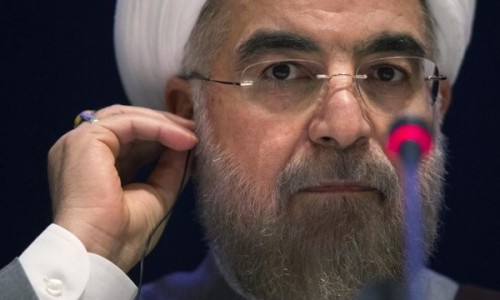“Senior Iranian officials”, using Reuters to press for an advance in nuclear talks, have warned that President Rouhani is politically doomed if there is no comprehensive settlement.
The officials, presumably close to the Rouhani camp, have previously used Reuters correspondent Parisa Hafezi — the bureau chief in Tehran before she was detained and then forced to leave Iran — as an outlet for optimistic projections. In October, they told Reuters that they were ready to “compromise” for a final settlement; however, the talks between Iran and the 5+1 failed to reach a resolution and a November 24 deadline for agreement was extended to July 1.
The officials have now shifted from optimism to warnings of political breakdown. They said Foreign Minister Mohammad Javad Zarif — who met US Secretary of State John Kerry in Munich on Friday — has raised concerns with Kerry and with other high-level 5+1 officials several times in recent weeks.
A “senior U.S. official” denied that any warnings about Rouhani had been received: “We’ll leave assessment of Iranian politics to the Iranians but this rumor is untrue.”
The Iranian officials maintained their claims. One of them, close to Zarif, said, “As Rouhani is on the frontline, naturally he will be more harmed.”
Other “Western officials” contradicted the US position and said the Iranian delegation had raised the concern in recent talks.
Officials on both sides told Reuters that the main point of dispute in the talks is the timing of the lifting of US-led sanctions on Tehran.
An Iranian official said the US is setting out a timetable of “years” for the sanctions relief, while Iran wanted restrictions on oil and banking to be lifted within six months.
At home, Rouhani’s inner circle gave no indication of weakness. Chief of Staff Mohammad Nahavandian told a crowd on Friday, “So far in the negotiations we have witnessed victories that have left the other party with no choice but to accept the reality and acknowledge Iran’s right to science and technology in the nuclear field, and to accept the reality that criminal sanctions are ineffective.”

